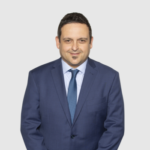From 1 July 2019, you may add more family members to your SMSF but what do you need to be aware of?
Even though more than 90% of Self-Managed Super Funds (SMSF’s) only have one or two members SMSF’s have traditionally been able to have up to four members in the fund.
The government has now decided that from 1 July 2019 the limit will be increased from four members to six members. This is welcome news for those funds that want to entice more SMSF members into the SMSF fold. For many this may mean adding in all/some of their adult children into the fund.

As long as the SMSF has a corporate trustee, it should be a relatively straight forward process to add adult children as trustees (add as directors of the company trustee) and members of the superannuation fund (be sure to check the superannuation deed as to the process of this). The ATO should also be informed of the change within 28 days via the approved form.
With the above change coming into effect from 1 July 2019, it is worth considering some of the advantages and challenges of adding adult children into the fund.
Advantages
- Children will be better educated about the tax and savings benefits associated with superannuation and improves their financial literacy. It will also help to get them engaged in their superannuation which can be quite difficult with younger people.
- A traditional fund with mum and dad as members does not incur much additional cost by adding a couple of extra members with small balances. The addition of more members to an SMSF should lower the cost per member.
- With Labor’s proposal from 1 July 2019 to cancel cash refunds for excess dividend imputation credits, having accumulation members in the fund will mean franking credits can offset contributions tax rather than the full credit potentially being lost.
- It’s easy for parents to make some voluntary contributions into the children’s member accounts if they can afford to. Non-concessional cap is $100,000 per year (or $300,000 if you bring forward two years). If concessional contributions are made (Overall concessional cap is $25,000 per year), a deduction and a tax refund can be created in child’s personal return.
- Starting contributions earlier for children with voluntary contributions will mean they have a great head start on their super. Over time with the lower tax rate and the benefit of compounding, they will significantly boost their end superannuation figure in retirement.
- Getting more members into the fund can result in more cash being available (via contributions and or rollovers) to fund a big purchase such as a property without having to borrow.
Challenges
- Different investment strategy – the new child members may have a different outlook on how the fund should invest given the difference in ages between themselves and parents e.g. they may want the fund to invest in volatile high growth assets whilst parents prefer more conservative/high yield investments as they near retirement age. This causes issues on the decision making of the fund and potentially can put a strain on the family relationships.
- It is possible to segregate assets within the fund to particular members (e.g have certain high growth assets segregated to the child) – but this can add a significant amount to the admin costs of the fund and may not be worth it.
- If the child was to separate or divorce, then it’s possible that the Super Fund assets could be at risk. (But this should not pose any threats to the parent’s super as the former spouse should only have a claim on the child’s balance within the SMSF)
- Rolling out a child’s balance later into another fund where SMSF has illiquid assets such as a property could prove difficult. Need to ensure that fund has cash available when the time comes to be able to do this.
- Need to carefully consider control of the fund and how benefits will be dealt with when a member/trustee dies.
If you would like to know more about adding a family member to your superannuation or would like to discuss a self-managed superannuation fund, please contact one of our Super Specialists, complete your details below and we’ll be in touch or give us a call on 03 9835 8200.
